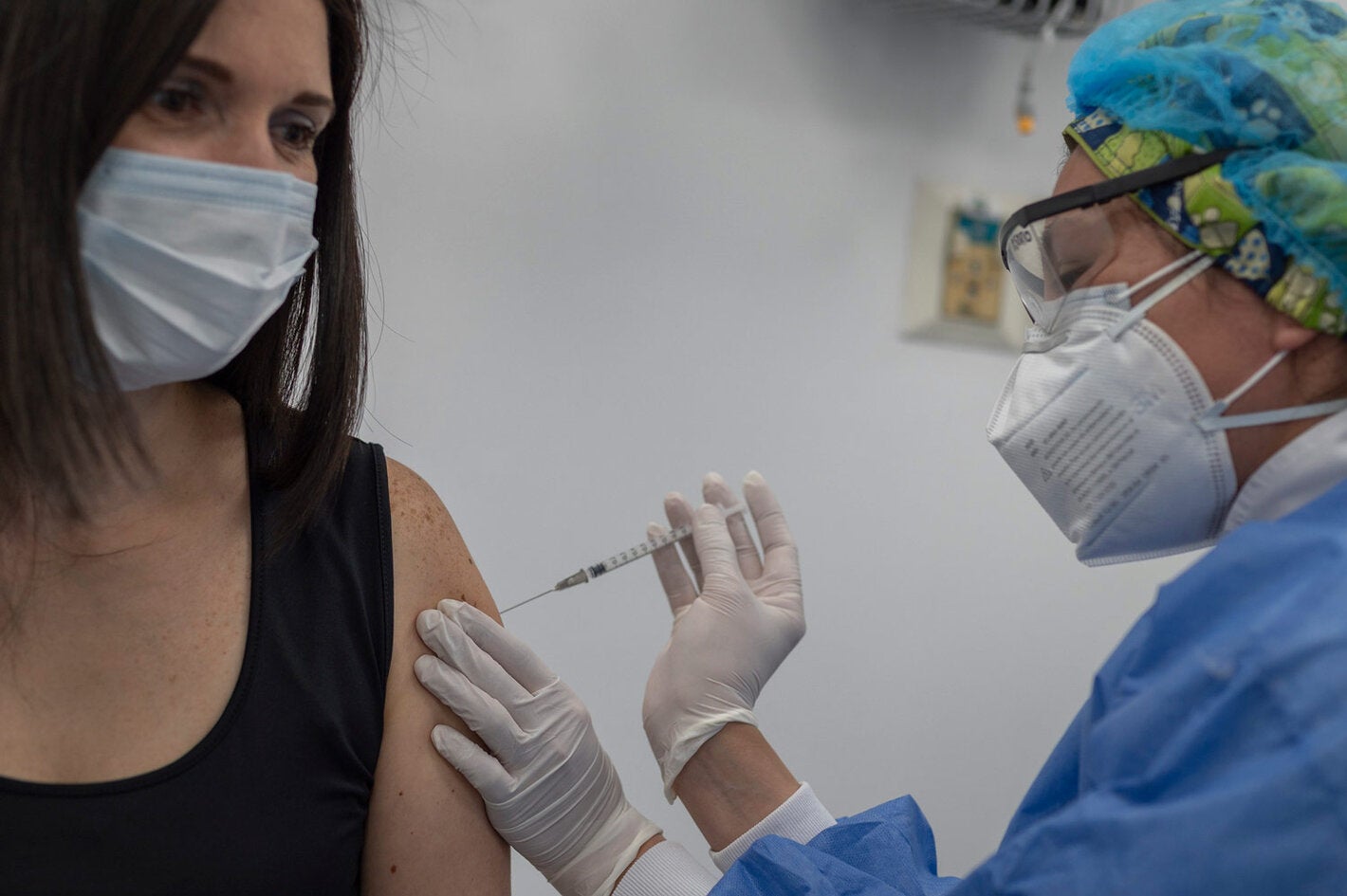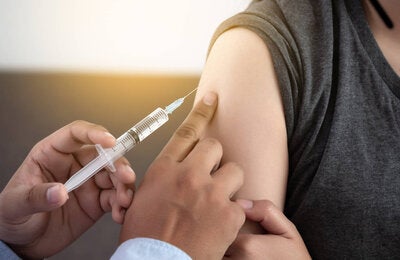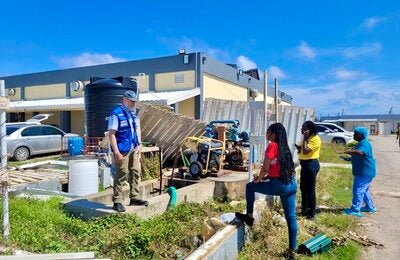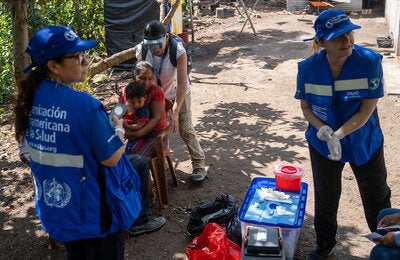
Washington DC, 18 March 2021 (PAHO)— Representatives from National Regulatory Authorities (NRAs) from the Americas participated in the "Workshop to facilitate the emergency use authorization of the COVID-19 vaccine developed by AstraZeneca/Bioscience and by Serum Institute of India, included in the emergency use list (EUL) of WHO”. The event took place on 17 March 2021 and was organized by the Pan American Health Organization (PAHO), and the World Health Organization (WHO) vaccine prequalification team. A similar activity has been previously organized on the COVID-19 vaccine developed by Pfizer-BioNTech, on 10 February 2021.
This initiative is part of the technical cooperation activities planned for each of the COVID-19 vaccines included in the WHO’s emergency use list, which is acquired via the COVAX mechanism.
During the workshop, JoséLuis Castro, Advisor on rational use of medicines from PAHO/WHO, described the dashboard developed by PAHO/WHO to support pharmacovigilance of COVID-19 vaccines. Carmen Rodriguez, Alain Fauconnier, and Sergio Nishioka, vaccine prequalification team, presented the outcome of the assessment of the COVID-19 vaccine from AstraZeneca/ Bioscience, and from Serum Institute of India. Gloria Giraldo, Health Canada, presented on “Post-authorization commitments: risk management plans and their implications in the pharmacovigilance”.
The workshop took place at the 18th Regulatory update meeting held by PAHO with the regulators in the Americas to discuss updates on the regulatory response to the COVID-19 pandemic and to support Member States to adopt rigorous and efficient regulatory processes for the introduction of COVID-19 vaccines.
WHO has also established a mechanism that allows NRAs to access the information on the listed products for emergency use, which requires the signing of prior confidentiality agreements. There are several NRAs in the Region of the Americas that already benefit from this exchange, with a view to avoiding duplication, improving regulatory efficiencies, and using existing resources to strengthen post-authorization surveillance activities for said products.



